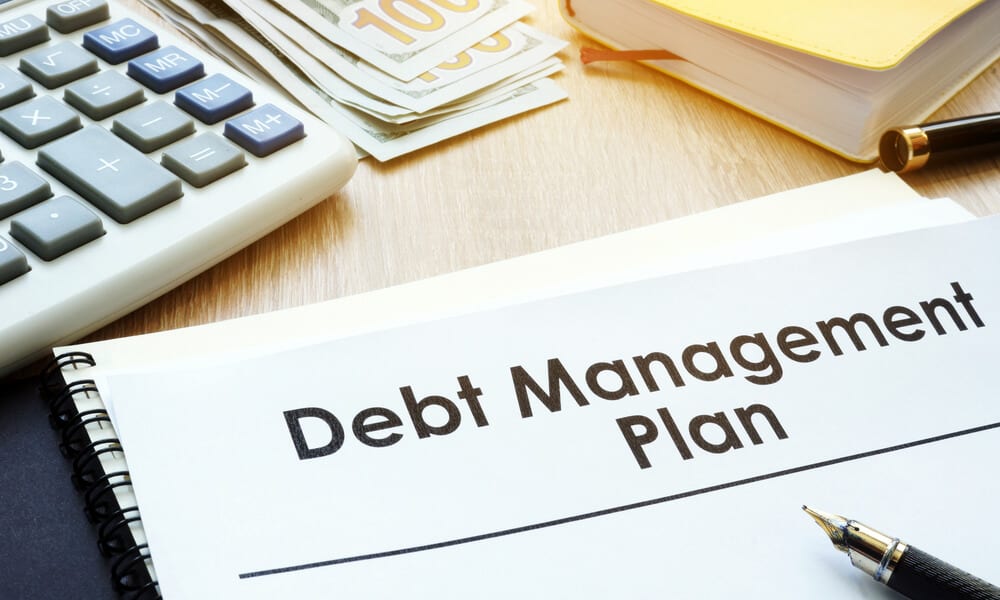Debt can feel overwhelming and unmanageable, especially when payments pile up and stress levels rise. A debt management plan is an actionable strategy designed to help you regain control of your finances, reduce your overall debt burden, and work toward financial freedom. It’s a structured approach that enables you to prioritize payments, negotiate terms, and create a roadmap to eliminate debt over time. Whether you’re dealing with credit cards, personal loans, or other financial obligations, building the right plan is essential for easing the strain and setting the foundation for long-term financial stability.
Assessing Your Current Financial Situation
Before you can create an effective debt management plan, it’s crucial to get a clear picture of your current financial standing. Start by listing all your debts, including the amount owed, interest rates, monthly payments, and due dates. Don’t forget to include any hidden costs or late penalties that might be adding to your balances. Similarly, list all sources of income and current expenses, separating fixed costs like rent and utilities from discretionary spending. This will provide a baseline understanding of how much you owe and how much you have left to allocate toward payments. Being honest and thorough at this stage will set you up for success later in the process.
Setting Realistic Financial Goals
Debt management works best when guided by realistic and specific goals. Think beyond simply “getting out of debt” and outline actionable targets you can strive for. For example, you might aim to pay off a certain credit card in six months or reduce your total debt by a percentage within a year. Consider your future financial aspirations as well. Do you want to build an emergency fund or save for a large purchase after your debt is paid down? Setting achievable milestones provides motivation and helps you track progress, making it easier to stay committed to your plan.
Exploring Different Debt Management Options
There is no one-size-fits-all solution when it comes to managing debt. Depending on your situation, various approaches may work better than others. Common options include consolidating debts into a single loan with a lower interest rate or enrolling in a debt management program through a reputable agency. You might also consider methods like the snowball or avalanche debt repayment strategies. Understanding these choices allows you to make informed decisions that align with your financial situation and personal preferences.
Creating a Detailed Budget
A well-constructed budget is the backbone of any effective debt management plan. Begin by calculating your monthly income and subtracting all necessary expenses, such as rent, utilities, and groceries. Next, allocate a portion of your remaining funds toward debt repayment, ensuring you prioritize high-interest debts or overdue accounts to minimize additional fees. Be mindful of unnecessary spending by identifying areas where you can cut back. Small changes, such as brewing coffee at home or dining out less frequently, can free up funds that you can use to make larger debt payments and accelerate your progress.
Negotiating with Creditors
Sometimes, a conversation with your creditors can go a long way in easing your financial burden. Contact lenders to discuss your current situation and explore whether they are willing to negotiate. You may be able to secure reduced interest rates, extended payment terms, or even hardship plans that temporarily lower your monthly obligations. Credit card companies, for instance, may agree to a lower settlement amount if you can pay a lump sum upfront. While it may seem intimidating, creditors often prefer to work with you rather than risk non-payment altogether.
Staying on Track and Making Adjustments
Creating a debt management plan is only half the battle—the other half is sticking to it. This requires discipline and ongoing tracking of your progress. Use tools like spreadsheets, budgeting apps, or automated reminders to ensure you stay up to date with payments. Monitor your spending habits and revisit your budget regularly to make any necessary adjustments. Financial setbacks, such as unexpected medical bills or job changes, may require you to reassess and adapt your plan. Flexibility is key to staying on course while maintaining your long-term focus.
Seeking Professional Help
If you’re feeling overwhelmed or unable to manage your debt independently, seeking professional help can be a game-changer. Certified credit counseling agencies offer personalized advice and services, such as debt management plans tailored to your specific needs. They can act as intermediaries between you and your creditors, helping to negotiate better terms or consolidate debts. Be cautious, however, and choose a reputable agency with no hidden fees or predatory practices. Research thoroughly to ensure the counselor you work with is certified and trustworthy.
The Long-Term Benefits of Debt Management
While debt management might feel daunting at first, the long-term benefits are well worth the effort. By systematically tackling your obligations, you can reduce stress, improve your credit score, and secure a more stable financial future. Over time, you’ll also develop better money management habits, such as budgeting, saving, and limiting unnecessary expenses. These habits not only help you pay off debt but also prepare you for emergencies, investments, and opportunities down the road.
Taking the First Step Toward Financial Freedom
Crafting a debt management plan is the first step toward regaining control and building a brighter financial future. While challenges may arise, remembering why you started and celebrating small victories along the way can keep you motivated. If you’re ready to take action, start by assessing your financial situation, setting clear goals, and creating a realistic plan. For additional resources and tools, consider exploring reputable credit counseling organizations or financial apps that can simplify the process and keep you on track.
Frequently Asked Questions
What is a debt management plan?
A debt management plan is a structured approach to managing and paying off debt. It typically involves budgeting, prioritizing payments, and sometimes negotiating with creditors to secure better terms.
Do I need professional help to create a debt management plan?
While it’s possible to create a plan on your own, professional help can be beneficial if you’re struggling to stay organized or negotiate with creditors. Certified credit counselors can offer personalized advice and support.
How long does it take to pay off debt with a management plan?
This depends on the size of your debt, monthly payments, and strategy used. Many individuals see significant progress within 2 to 5 years of following a thorough debt management plan.
Can a debt management plan affect my credit score?
Initially, enrolling in some programs may impact your credit score. However, as you consistently make payments and reduce your debt, your score is likely to improve over time.
What’s the difference between debt management and debt consolidation?
Debt management focuses on creating a repayment strategy and negotiating terms, while consolidation combines multiple debts into a single loan with a potentially lower interest rate




